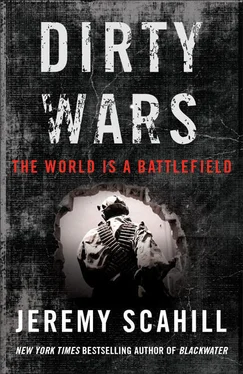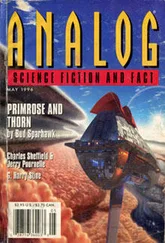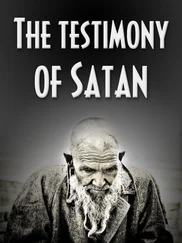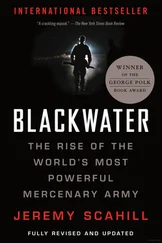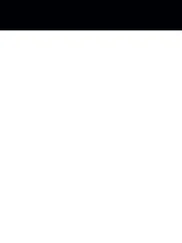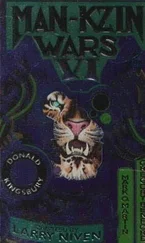In June 2002, the agents investigating him were able to get a warrant issued for his arrest, though they were skeptical he would return. The warrant was not issued for his alleged contacts with the 9/11 hijackers or for soliciting prostitutes, but rather for passport fraud, stemming from Awlaki’s scholarship application back in the early 1990s, listing Yemen as his place of birth. When he arrived in the United States for college and applied for a Social Security number, he had also listed his birthplace as Yemen. When Awlaki was confronted about it at the time, he had resolved the issue with the US authorities, explaining that his Yemeni documents had been in error. Now, a decade later, the Feds wanted to reopen the case as a pretext to arrest him. “We were ecstatic that we were able to get a warrant on this guy,” recalled a former Joint Task Force agent. The charges they wanted to pin on him for passport fraud carried up to ten years in prison and could potentially be used as a vise to pressure him to cooperate further in the 9/11 investigation.
Whether he would ever return to the United States, the investigators did not know. They got the Treasury Department to put Awlaki’s name into the TECS II system, the Treasury Enforcement Communications System, which meant that any interaction he had with US Customs or Immigration officials would prompt a “look out” alert and result in his detention. If he tried to enter the United States, the FBI would be informed immediately.
It seemed like a long shot.
But Awlaki did return, much sooner than anyone expected, and when he did, a series of events unfolded that raise serious questions about the nature of Awlaki’s relationship with the FBI.
IN SANA’A, Nasser Awlaki was arguing with his son. Anwar had told him he was done with living in the United States. The harassment from the FBI was too much, Muslims were being persecuted, jailed, investigated, he told Nasser. But the elder Awlaki would not give up his dream of having a truly American son and of him getting his PhD in the United States. “Give it another shot, Anwar,” Nasser told his son in September 2002. Nasser and his wife offered to take care of Anwar’s elder son, Abdulrahman, and daughter, Maryam, while Anwar and his wife and their younger son, Abdullah, returned to Virginia to see if they could salvage their life in the States. “It was like a trial,” Nasser recalled. “If they found things will be good” in the United States, then Nasser would bring Abdulrahman and Maryam to join their parents. Anwar finally agreed. “It was really under encouragement from me. I told him, ‘Go back, and see how things are, and if everything is OK, continue your PhD at George Washington University,’” said Nasser.
The FBI, it appears, had gotten wind of Anwar’s plans. On October 8, 2002, Awlaki was the subject of a classified, limited-distribution FBI Electronic Communications (EC) intelligence memo. Its contents remain classified. The next day, on October 9, 2002, the US Attorney’s Office in Colorado abruptly filed a motion to have the warrant for Awlaki’s arrest vacated and dismissed. The US Attorney who withdrew the warrant said that the government had determined there was not enough evidence to win a conviction, adding that Awlaki could not be charged for “having a bad reputation.” Two days after the FBI EC memo on Awlaki was sent and a day after the motion to quash the warrant for his arrest was filed, Awlaki and his family had arrived at JFK Airport in New York on a flight from Riyadh, Saudi Arabia, landing just after 6:00 a.m. When Awlaki went through passport control, his name popped up on the TECS II and terrorism watch lists. The reason provided on screen was: “ANTI-TERRORIST PASSENGER.” When agents searched their databases, they also discovered the warrant that the US Attorney’s Office in Colorado was trying to get vacated. It was still registering as active. Awlaki was pulled aside by Immigration and Naturalization Service (INS) agents and, with his family, detained in a special screening area of the airport for three hours. “Subject was escorted to INS primary and secondary by U.S. Customs. He is a match,” was the message recorded by the agents in their incident log. Their luggage was searched and the Customs officials informed their superiors that they had Awlaki in custody. They tried to reach the FBI special agent listed as the point of contact in the warnings that had popped up on their screens when Awlaki came through. But initially they could not get through to that agent, Wade Ammerman, because his cell phone number was invalid.
Ammerman was one of the lead agents in the Awlaki investigation. A senior Customs official, David Kane, told the agents holding Awlaki that he would track down Ammerman. By coincidence, Kane had years earlier worked the Awlaki case when Awlaki was an imam in San Diego. Kane was then relocated to Virginia and had also investigated Awlaki as part of Operation Green Quest, targeting terror-financing networks. Although he had tried to link Awlaki to those networks, Kane said, “We did not find a link between that group and Awlaki.” So, Kane knew exactly who it was that Customs had at JFK Airport on October 10, 2002. But when Kane finally reached Agent Ammerman, he told Kane that Awlaki’s “warrant had been rescinded” and that he should be released. Kane said the FBI offered “no explanation” for the order. In the incident log, the Customs officials noted that they had “RECEIVED A CALL FROM S/A KANE NOTIFYING US THE WARRANT ISSUED BY THE STATE DEPT. HAD BEEN PULLED BACK,” adding that a representative of the FBI’s Washington Field Office had called them regarding the Colorado warrant, saying “THE WARRANT HAD BEEN REMOVED ON 10/9.” Curiously, the warrant was not actually removed until October 11.
The US documents describing Awlaki’s detention at JFK noted that the Awlakis were released by the agents at 9:20 a.m. “with thanks for their” patience and given a “comment card” to describe their experience with the US authorities. An official from Saudi Arabian Airlines then escorted the Awlakis to their connecting flight to Washington, DC. “The custom officials were quite baffled at the situation and didn’t know what to say,” Awlaki later recalled. “I got an apology from one of them with a weird face on him. Actually I myself was shocked and asked them: Is that it? They said, yes sir, that’s it. You are free to board!” The next day, the warrant for Awlaki’s arrest was officially vacated, though the FBI clearly knew about it a day before it happened.
Now free to travel in the United States, Awlaki returned to Virginia. He reconnected with old colleagues and began assessing what, if any, future he could envision for his family in the United States. But then, a curious meeting happened. In October 2002, Awlaki paid a visit to another charismatic preacher, an Iraqi American named Ali al Timimi. Timimi was the lead lecturer at Dar al Arqam, an Islamic center in Falls Church, Virginia. But Timimi was not just a religious figure; he was also a brilliant young scientist who had attended the elite Georgetown Day School in DC and had a degree in biology. At the time of Awlaki’s visit, he was pursuing a PhD and working on cancer gene research. Timimi was identified by the FBI for potential involvement in the “anthrax plots” that were uncovered after 9/11, and the Bureau also believed he might be involved with a network that sought to train Western jihadists on US soil. No charges were ever brought against Timini in connection with the anthrax investigation.
The meeting between Timimi and Awlaki would help form the basis for an alternative theory on Awlaki’s relationship with the FBI; one in which he was not simply the target or person of interest in an investigation.
Had the FBI actually flipped Anwar Awlaki and made him an informant?
Читать дальше
